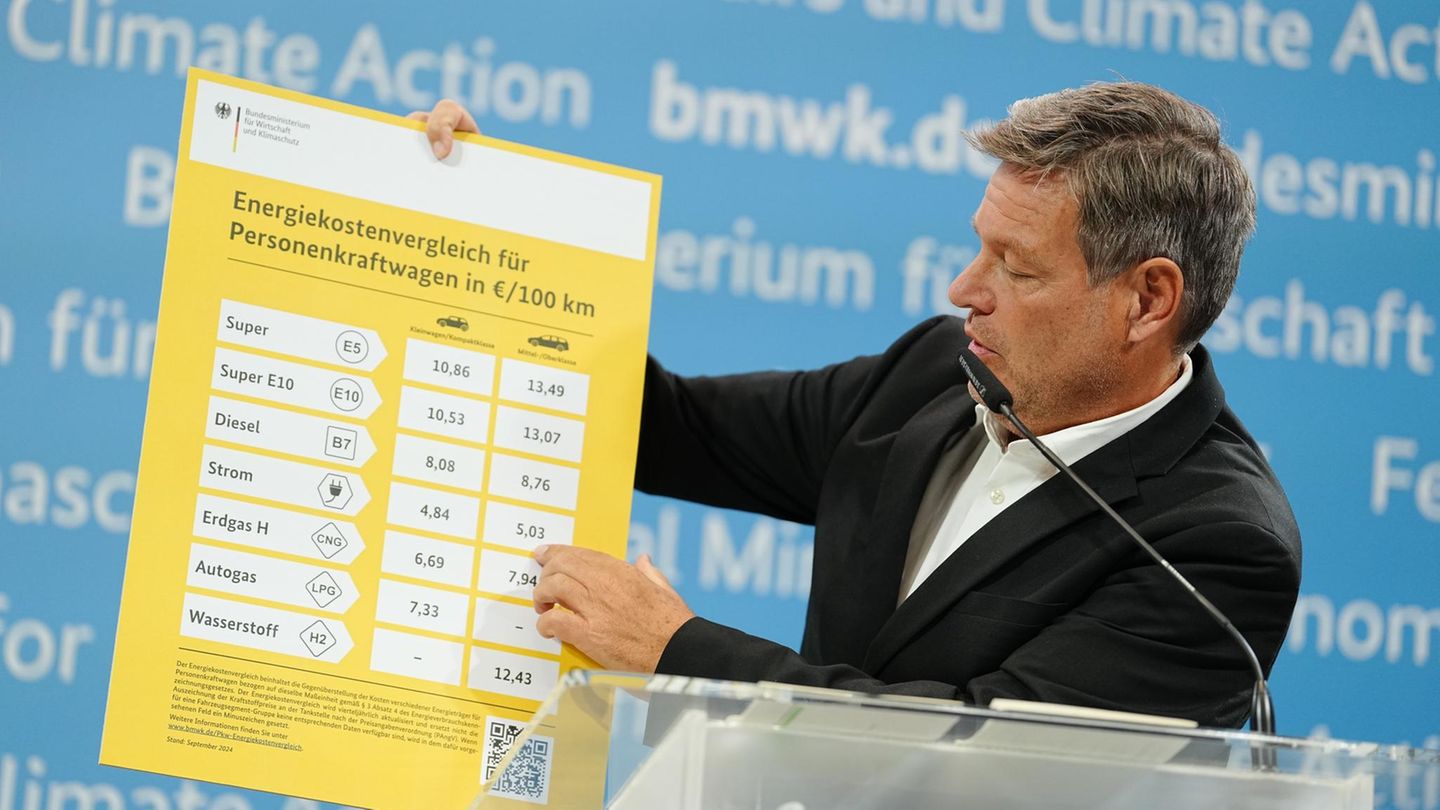The car industry is in a critical situation. Politicians, industry and unions are reacting with well-known strategies. Germany is losing itself in the minutiae.

This is original content from the Capital brand. This article will be available for ten days on stern.de. After that, you will find it exclusively on capital.de. Capital, like the star to RTL Germany.
It has become a popular ritual in politics to call a “summit” when one wants to signal to the country that an issue is serious, important and urgent and that solutions must be presented as quickly as possible. The results of such high-level meetings are usually low, but this does not change the fact that the summit instrument continues to enjoy great popularity.
The “Auto Summit” that Federal Minister of Economics Robert Habeck called for Monday and which was attended by industry representatives, politicians and trade unionists is also part of this rather dubious tradition. The situation of what remains Germany’s most important industry is indeed worrying: Volkswagen is considering closing factories, BMW is lowering its profit forecast, as is Mercedes – and all of them are selling far fewer electric cars than originally hoped. For a federal government that came into office with the goal of a mobility turnaround, this is more than just a major problem.
4000 euros from the state?
And there are actually a few ideas on the table. The SPD is reviving the idea of a scrappage bonus, and Volkswagen can also imagine something like that: 4,000 euros from the state, 2,000 from the manufacturer. Anyone who knows how markets work knows that this would be nothing more than a flash-in-the-pan subsidy for manufacturers, which would not really make any electric car cheaper. Mercedes is pushing for the strict CO2 regulations to be relaxed, but this would have to be decided at the Brussels level. And of course the tax advantages for electric company cars are coming back into play, which the industry hopes will help to finally push battery-powered cars into company fleets on a larger scale.
“Above all, we need clear, reliable signals for the market,” said Habeck after Monday’s event. It is a somewhat belated realization after the federal government first introduced purchase premiums for electric cars and then abolished them overnight in the panic following the debt brake ruling.
China is pulling away
However, given what is currently happening on this market, all of the instruments being discussed now seem strangely small – not appropriate to the actual situation. The German market is not unimportant, but its importance for manufacturers pales in comparison to what is currently the real problem for everyone. And that problem is China. For decades, the Chinese have been siphoning technological know-how from German car manufacturers in joint ventures. They then took the lead in the increasingly important IT equipment for cars. And they have kept a whole army of often loss-making electric car manufacturers alive with financial aid, from whose ranks the most successful are now attacking the competition from the USA and Europe with low prices.
This means that all German manufacturers are losing massive market share in China, and no scrappage bonus or CO2 allowance will change that. However, Habeck’s initial response to China was that he was “not a fan of tariffs” and that a political solution had to be found.
A model from France is supposed to save the car industry
One of the more interesting proposals is that which can at least be understood as a response to Chinese industrial policy. Volkswagen referred to a concept based on a model from France: there, buyers of electric cars are only given a bonus if the production of the vehicle causes less than 14.75 tons of CO2. It would be a principle that would have advantages for climate protection and could keep Chinese competition at bay, at least in Europe.
On the very day of the auto summit, the USA came up with another approach that could almost be described as brutal. The American Department of Commerce spoke out in favor of completely banning the sale of particularly modern Chinese cars with Chinese or Russian software and hardware. The reason is security concerns: Ever since the pagers exploded in Lebanon, it has been clear to everyone that electronically controlled devices can, if necessary, be used as weapons in another country. But of course such a ban would also be a tool in the American-Chinese trade war, which has become increasingly clear in recent months.
Germany or Europe do not have to follow such a hardcore trade policy, and it is foreseeable that it will also have its disadvantages. But the question is whether the proud car nation is still thinking too small, while the other large industrial regions of Asia and the USA are moving the big wheel. In any case, this game will certainly not be won with a scrappage bonus.
Source: Stern




